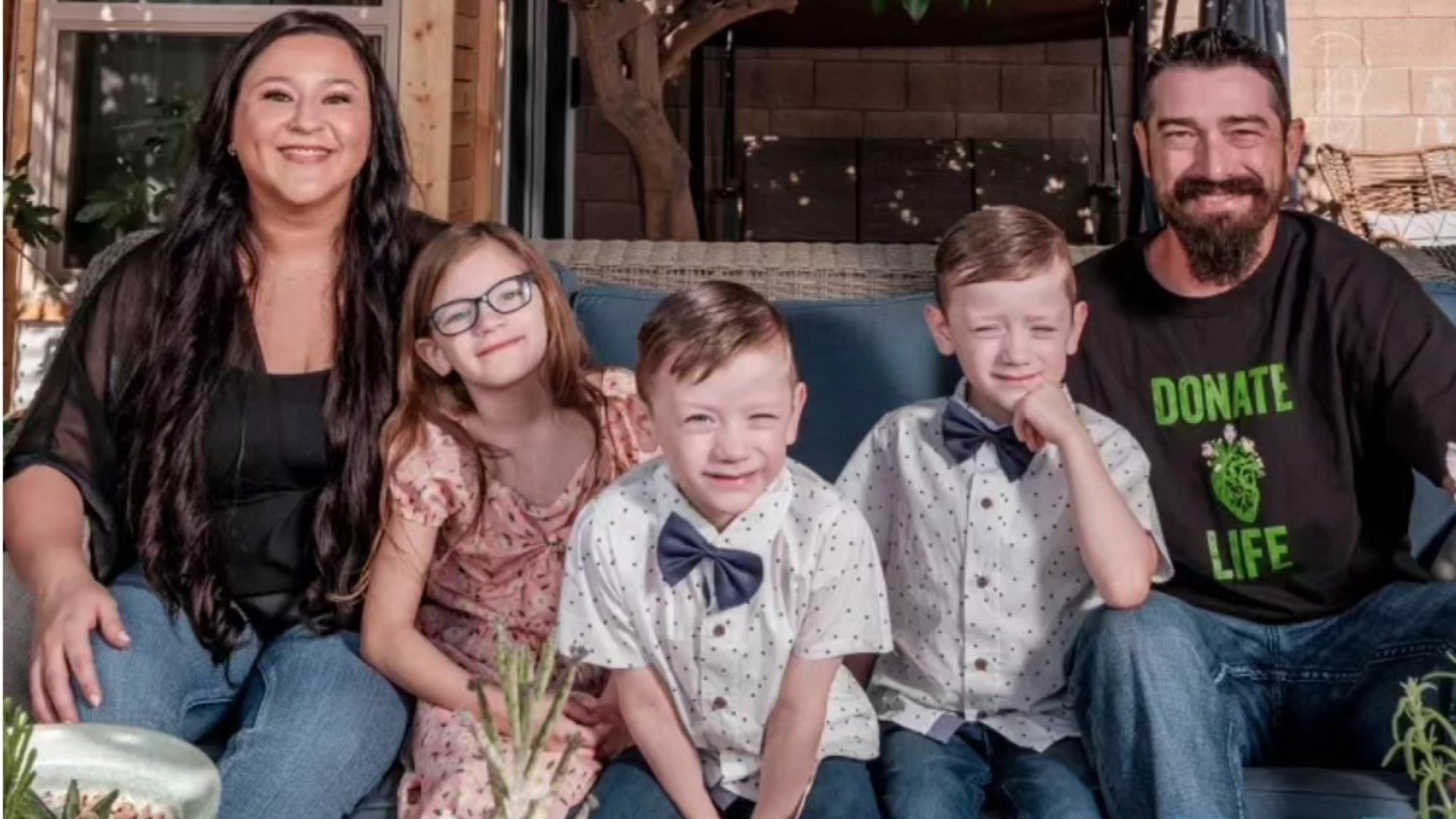
Every parent knows the acute terror of one day coming to the realization that their child may not be as healthy as they once believed. The Siqueiros family in Arizona endured this fear not once, not twice, but on three separate occasions, involving all three of their children.
Each of their three kids was diagnosed with restrictive cardiomyopathy before turning 4 years old, and each child would require a heart transplant to live.
'It was terrifying for each one,' Sara said about her children's diagnoses.
Sara Siqueiros, a stay-at-home mom, said the news never became easier to hear. “It was terrifying for each one,” she told People.
The couple’s eldest child, Isabel, who is now 7, was the first to be diagnosed in 2018. Twin brothers Jason and Jaxon were just 9 weeks old at the time. Doctors thought Isabel’s condition was croup, an inflammation in the airways that causes difficulty breathing. Her parents believed it was progressing to pneumonia.
But when Isabel stopped urinating, they knew it was something more severe and took her to the Phoenix Children’s Hospital. “The next morning, we found out she had a rare heart failure condition called restrictive cardiomyopathy,” Sara said. “She was in heart failure, and more than likely, she was going to need a heart transplant.”
More from CafeMom: Dad Gets Matching ‘Zipper’ Tattoo With Daughter Who Has Scars From Rare Heart Defect
Isabel received her heart after two months on the transplant list.
She was added to the heart transplant list in March and received her new heart in May. After Isabel’s ordeal, Sara and her husband Jason Sr., worried about their sons. Doctors used bloodwork and echocardiograms to test for restrictive cardiomyopathy at 3 months and then again at 6 months. Initially, they showed no signs of the disease.
“We were so happy, everything looked perfect, their hearts were functioning just fine,” Sara said via People.
But things changed as the boys got older.
After the twins’ first birthday, Jason suffered three cardiac arrests. Later, his parents learned that in addition to restrictive cardiomyopathy Jason also had arrhythmia. Doctors tested Jaxon and discovered he had restrictive cardiomyopathy just like his siblings.
“It was terrifying finding out that there was something this severely wrong with them,” she said. All three children started wearing pacemakers.
That wasn’t the last of the Siqueiros family’s worries.
Things took a turn for the worst in June 2020, when Jason went into cardiac arrest at home. It lasted for 40 minutes. “I just tried to keep him alive until first responders got here,” Sara said per People.
She started CPR as she called 911. Jason was flown to Phoenix Children’s Hospital. After all that time in cardiac arrest, his parents didn’t know if he would still be “neurologically sound” and still eligible for a heart transplant.
Days later, Jason opened his eyes and started playing. By the end of the month, he received his heart.
The family is intentional about honoring the donors who have made their children's lives possible.
Jaxon would receive his heart transplant that September. “With one, we were terrified — and with three, I didn’t know how we were going to make it through,” Sara said. “It didn’t get any easier. The first time was really hard. And the last time was really hard.”
All of the trauma has made Sara appreciative. Still, she added, “I wake up every single day just with so much gratitude, even if I just hear their little feet pitter pattering down the hall.”
The family has also made special efforts to honor the donors who’ve allowed their children to survive. “I have an extra cake,” Sara said. “I have extra chairs and plates sitting out for holidays. I have three extra stockings for Christmas. We plant forget-me-nots every spring. We include our donors in everything.”
The children will be on two types of medication for the rest of their lives and undergo routine tests and bloodwork, but otherwise, they live normal lives. Isabel is going into second grade as the twins start kindergarten.
“They do normal kid stuff, which is just wonderful to me,” Sara shared. “I worried about the traumas and everything that they’ve been through and if they would ever be able to fully act normal — and they do. They’re awesome and it’s exciting to see.”




